Listen to the podcast here:
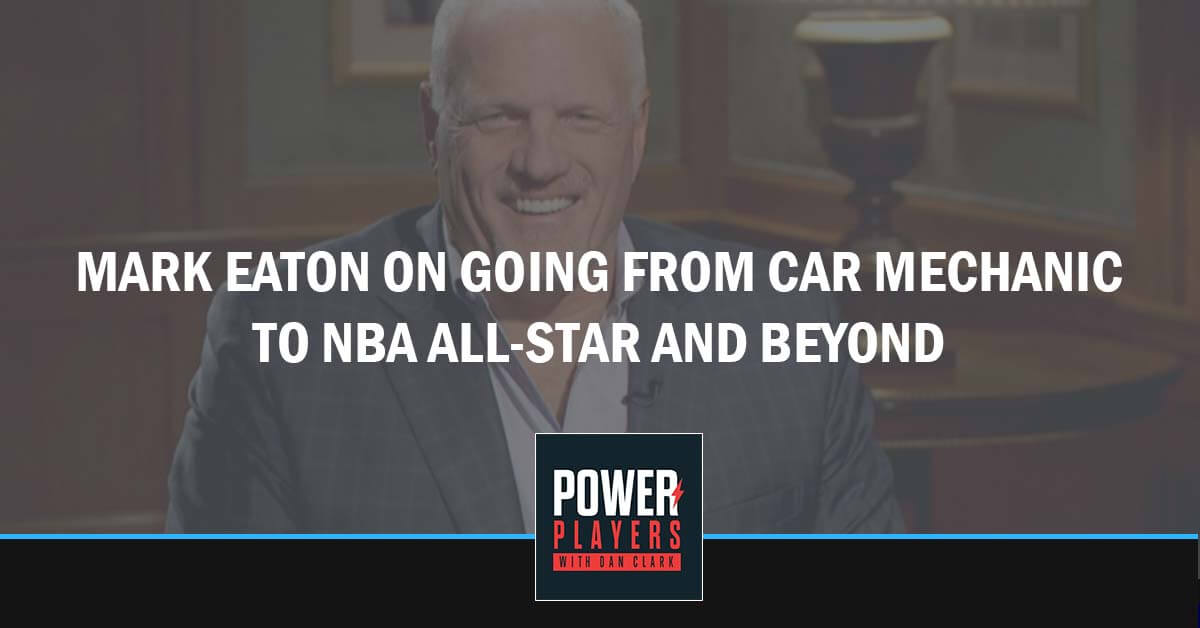
Quit trying to do all the things you aren’t good at and focus on the one thing you’re great at. In this episode, Dan Clark welcomes Mark Eaton, an NBA All-Star player, Hall of Fame speaker, bestselling author, philanthropist, and friend (who has since passed away in a tragic accident.) Mark shares his unbelievable inspirational life story of going from car mechanic to NBA All-Star and what he learned that led him to write and teach The Four Commitments of a Winning Team.
—
Mark Eaton On Going From Car Mechanic To NBA All-Star And Beyond
In this episode, Mark Eaton, pro basketball player, Hall of Fame speaker, bestselling author, public speaker, philanthropist, and one of my dearest friends, who has since passed away in a tragic accident, shares his unbelievable inspirational life story of going from car mechanic to NBA All-Star to what he learned that led him to write and teach The Four Commitments of a Winning Team.
—
Welcome to my program. How are you, Eaton?
Thanks, Dan. What an introduction.
I appreciate you jumping on here. For all of my readers and followers, you need to know the story of Mark Eaton because as we are doing our best to come out of the COVID-19 and doing our best to make sense of this new normal. What Mark Eaton brings to our fight and to our senses is the reality that crisis does not make or break the man or woman. It reveals their true character within.
Mark has been at this level of mindset since his youth. Will you please take us back to your story in a consolidated way where as you grew up, you were faced with people always asking you, “Are you a basketball player?” Take us back. I don’t want to put any words in your mouth, but I want everybody to hear your consolidated story.
I’m originally from Southern California. Growing up, I was always tall and even from a very young age. My father was 6’9 and my mother was 6’1, so I grew rapidly and often throughout my young life. There was always that feeling of being different or standing out, and kids made fun of you and things like that. As I got into my teenage years, it became even more uncomfortable because now, once you get over 6’7 or 6’8 and you’re going up, you stand out everywhere you go.
That was always very challenging for me because everybody would say that, “Why aren’t you playing basketball?” I didn’t run around telling everybody else what they should be doing with their lives and I didn’t feel it was their place to tell me what I should be doing with mine. It pretty much shut me down socially as a young man. Another challenge was I played sports growing up with my friends at the park, but once we got to high school, the basketball thing I struggled with. I wasn’t very good at it. I was growing and I was uncoordinated.
Daily preparation creates a consistency that stands the test of time.
Most high school coaches are the English teacher that they say, “Do you want to make some extra money? You’re the basketball coach now.” The coaches didn’t know what to do with this big guy who was uncoordinated. I sat on the end of the bench and struggled through high school with the whole basketball thing. At the end of my senior year, it was like, “It’s time to give this up and go get a job or do something.” I wasn’t interested in going to a university at that point in time. A friend of mine was going to trade school in Arizona.
I had grown up working on engines. My father was a diesel mechanic, so I was pretty familiar with that kind of work. I went to Arizona for a year to go to trade school to be an auto mechanic, then I was back in Southern California and I was working at a tire store for a couple of years. It was a very busy intersection.
One day, I was out there talking to a customer trying to sell a brake job or a tune-up or something. A junior college basketball coach happened around the corner and saw that 7’4 guy standing out there and immediately came in and wanted to know exactly why I wasn’t playing basketball, what I’d been doing all my life, and how did I get here. It was quite annoying and I rebuffed him at first. I was like, “Do you want your car fixed or not? Let’s stop with all the dribble about being tall and being a basketball player because every single person that came into my shop asked me that same question.”
I want my readers to visualize the 7’4 guy under a Volkswagen Beetle working on the engine. His head is sticking out of the front of the car and his feet are sticking out the back of the car. That’s got to get a coach and everybody’s attention. From under the car, you’re selling a brake job. The coach stops and says, “Wow.” Have you always been muscular or were you like me in high school, where I was so skinny that I had to jump around in the shower to get wet?
I was pretty skinny and lean at that point in time. At 7’4, I probably weighed 235 or 240 or something like that. Not very much for that size frame. In any case, this coach kept coming back. He went away the first day and he came back the next day and said he had a rattle under his hood and wanted to go for a drive around the block, which was a ruse to get me in the car to talk about basketball. He brought me basketball shoes and tried all these things to get me to talk to him.
Finally, he said, “I know some things about basketball that you don’t know. I know things specifically designed for big guys that you’ve probably never heard of before. If you would give me 30 minutes on the basketball court, let me show you a couple of those things. If you don’t like what you see, I’ll leave you alone. You can go on about your life.” I said, “Finally, there’s an end to this.”
We went over to the junior college on a Saturday morning. I said, “Can you start showing me these very simple basketball moves down near the basket, things I could do without dribbling ball, catch the ball, take a step across the key and hook shot?” There were about 7 or 8 moves that he showed me that were very simple like that, and it was intriguing. He said, “I’ve worked with some other big guys who have gone on to some great success. If you’re willing, I’ll be here for you. We could start working out after you get off of work at the shop and let’s see how this goes for a little bit.”
It was intriguing enough for me that I said, “If this guy is willing to teach me, the least I can do is listen to him a little bit.” We started doing that after work. The first couple of weeks were pretty rough, but the thing that kept me going was his commitment to me. He said, “If you want to do this, I’ll be here every morning, every evening, and show you these things.” After doing that for 3 or 4 months and getting myself a little better condition, I decided, “I’ll try it for one year. Let’s see what happens.” He convinced me to go back and I made the commitment to do it. That’s how it started.
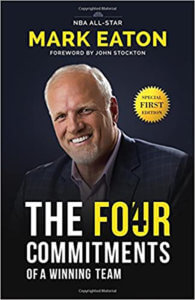
The Four Commitments of a Winning Team
When we come in contact with someone who doesn’t see us for who we are, they see us for what we have the power to become. I see how that’s translated into your ability to make everybody else around you better. It inherently taught you to make your teammates better. Tie us in the lessons you learned through that experience where some days you’re discouraged, some days you’re down, and what kept this passion the first of the three-piece. What kept your passion to fix what’s broken and keep getting better and better alive?
Primarily, it was this man’s commitment to me because as I went through my junior college and then onto my career at UCLA, which was less than exemplary, I sat on the end of the bench there too. After a couple of good years of junior college, this coach Tom said, “You have to keep the long-term in mind. We’re not here to be a success at UCLA. We’re here to have a chance to play professional basketball, whether it’s in the NBA or overseas, wherever it might be. If you’re not going to play in the game, you’re going to have to take the practice as you’re getting to the first day of practice in the last week. You don’t have to continue to run and continue to hit the weight room.”
What he was teaching me was more about the preparation and constant persistence that was the key to success as opposed to one minute of glory here or there and because he had committed himself to me, I believed that he could see a little bit further than I could at the moment. I kept working, which prepared me for when I did get a chance to travel for an NBA team that I was ready for because I listened and continued to work despite not having any immediate success around me.
That brings us to the second tail of talk about which is the epitome of preparation. Take us back to UCLA and an experience you had with another big NBA star who taught you a little bit more about your position. Talk about the preparation that allowed you to take advantage of the opportunity when you finally got that opportunity to try out for the Utah Jazz.
One afternoon at the men’s gym at UCLA, which was where they had these extraordinary pickup games every afternoon, and all the great players in Los Angeles would be there playing against each other and testing their skills against one another. It was a very quick pace and fast game that I was struggling with. I seem to always be behind the play a few feet. I couldn’t figure out where I fit out there. It was very frustrating for me because not only was I not playing during the season, summer leagues became a struggle too because the game seemed to be moving beyond me.
One day, I’m out on the court and I’m trying to chase one of the other guards on the other team and Rocket Rod Foster was the fastest human being ever seen. He was getting to the basket and I was barely getting across half court. I was frustrated. I’m standing on the sidelines, taking a break for a minute. I’m holding my shorts and feeling sorry for myself a little bit. I felt this big, large hand on my shoulder and I turned around. It was Wilt Chamberlain.
He had retired from the NBA and lived up in Bel Air up above the campus. He said, “First of all, you will never catch that man. More importantly, it’s not your job.” He grabbed me by the arm and said, “Come on after the basketball court.” He put me right in front of the basket and said, “You see this basket behind you? Your job is to stop players from getting there. Your job is to make them miss their shot, collect the rebound, throw it up to the guard, let them go down the other end, and score it. Your job is to cruise up the half-court and see what’s going on.”
It was this extraordinary experience for me because he took the whole mystery of the basketball game away from me. He showed me exactly what I could be good at, exactly what I could do to help my team, and something that I could thrive at. He said, “This is your job. Your job is to protect the basket and you’ve got to be the last line of defense. If you do that, good things will come.” I quit trying to do all the things I wasn’t very good at from that moment forward. I focused on the one thing that I was great at.
If you commit yourself to others, the rest will come.
A few years later, that little five-minute conversation took me to break the NBA record for the most blocked shots in a single season. When I got the opportunity to try it for the Jazz, I remember one day in particular, Frank Layden, who was the coach, took a chance on me. It was a very unproven talent and he took a chance on me. We’re playing the Dallas Mavericks and he puts me in the game in the second quarter. This was about a month into the season. I blocked six shots in five minutes. I remember turning up the court after block and mono shots and glancing over at the bench.
The coaches were nodding to each other on the bench. I said, “I can do this job.” I became the anchor of the defense for our team. We built a philosophy and a culture around helping each other on defense, doing a fast break on the opportunity, and trying to push the ball up the floor. It became a culture of the team that still exists nowadays. That’s what our team is known for.
When I had a chance to interview Magic Johnson, I asked him how he became a point guard at 6’9. He said his dad convinced him as a young man that it was as cool to make a cool, great pass as it was to make a cool, great shot. He focused on what he was good at. Many comparisons between Magic Johnson and Mark Eaton are still out there behind your back that the two of you are so famous for making all of your teammates around you better.
I want everybody to understand that blocking shots is a quality in itself. You have to have perfect timing, perfect positioning and get your feet in the right place. What game have I watched several times where you set an NBA record and blocked how many shots in the same game, fourteen or something?
I did it 2 or 3 times against different teams, Seattle Navy, Spurs, and Portland.
To rise to the occasion at what you’re good at, you experienced this amazing preparation, your whole life, that has prepared you for the championship. Let’s go back to the run. We watched The Last Dancethe documentary that highlighted the Bulls. Proudly, I was a fan that went to every single playoff game in the United Center to think about the preparation that you put in that allowed the Jazz to take it to the next level. As you said, even after your retirement, your legacy still leads on defense wins games. This is the Mark Eaton legend that we need to talk about. Talk about the preparation that you put in. How many hours and what you did at the practice allowed you to perform at the highest level of game time?
Every time you go to the next level, there’s a required preparation that you don’t know about and are not aware of until you go and do it. When I came into the NBA, it was the era of the big man who dominated at the low post down close to the basket. It was either kill or be killed down there. I found that I wasn’t strong enough to hang with the likes of Bob Lanier, Artis Gilmore and Kareem Abdul-Jabbar. I had to double down in the weight room and get my body in better condition. I spent a lot of time doing squats and cleans and other things back then to prepare myself along with the rigors of the NBA season. We were playing 5 games in 7 nights in 5 different cities.
You have to have yourself in top condition and until you experience it, you don’t really know what’s required of you. Once I experienced it, I said, “I’m going to be good at this job. I have to prepare myself daily to do a great job.” It was physical and mental preparation. At the beginning of the game, I would walk around and I would say, “This is my house in here under the basket. This is my house now because in here, if you come into this area, this is where you’re going to deal with me and you’re going to remember me tomorrow morning when you wake up.”

NBA All Star: Every time you go to the next level, there is a required preparation you don’t know about.
That’s how we lived in the ‘80s in the NBA. That daily preparation created a consistency that stood the test of time, where the team knew that they could count on me. They had chances to trade me over the years and different things and they never did because I was prepared and they knew that I’d come to work every day, ready to go.
Tie that into every one of us who is reading who’s never been a professional athlete. How do we make ourselves irreplaceable? You were irreplaceable for twelve seasons and rotation is consistency.
It’s about becoming invaluable to your team, to your customers and finding ways to become so valuable that they can’t do things and can’t imagine doing things without you. That’s when I go out and speak to corporations. It’s doubling down on who you already are. What are the traits and skills you already have that you can leverage in your relationships with the people that you deal with?
There’s a reason people do business with you and it’s not always mutually. It’s not because you have a great product or service. That’s a part of it, but it’s because they liked you and liked doing business with you. Sometimes, you get so caught up in the new whiz-bang gadget idea that we forget that it’s a people business. That’s the key. I was easy to work with and I did what the coaches asked me to do. That’s why I hung for so many years.
Teach us how you perfected what you do away from the ball and contribute, so you didn’t always have to be the one with the ball shooting. You didn’t even have to have the ball to pass it. It’s what you did away from the ball that’s still allowed you to contribute to the team spirit. Talk about how each employee must come to work and feel valued and needed. If they don’t, it’s not the bosses’ fault necessarily. It’s their fault. They’ve got to do something on a daily basis to prove to themselves that they’re invaluable and are needed. Talk about the mindset of what you do away from the ball and relate that to our everyday life.
I see this even in my kids. I had to discuss with my son about a truck and he was whining about this and other things. It’s like, “Your job is to show up on time, not giving anybody any grief and do what you’ve been asked to do.” Sometimes, we get so wound up in what’s not working right with our jobs or with our boss that we take away some of our own opportunities because there are opportunities to thrive. There are opportunities out there to do a better job. It’s a mindset that you have to come to work with every day.
That’s what I did with the Jazz. We had losing streaks where you lose 3 or 4 games in a row and things weren’t going well. The press or sports radio starts talking about you. Those are the times when you had to double down on your preparation and get ready to play the next game. There were times when we had to close the locker room and work out our differences with each other because, in NBA, you can’t wait until the next board meeting or the next offsite retreat. We have to figure out winning now.
Otherwise, we might all be living in a new city next week, then trade you all. That cultivated that philosophy of, “There’s nothing here we can’t work out. We can figure this out. We just have to sit down and try and get past our personal differences so that we can work back together and get the job done.” That was a daily requirement.
You don’t just want to be a speaker. You want to be an all-star speaker.
Dear readers, you can tell that our guest, Mark Eaton, is brilliant. He’s smart and articulate. He represents every professional athlete in the proper way. I say that with a little frosting on the cake because he’s a devoted husband to the beautiful and amazing Teri, who we are friends with. What you said about preparation, passion, working out your differences, winning now and not putting it off relate that to your personal relationship with Teri. I love the way you love her. It’s so fun to be out with you socially to see how you look at each other. It’s a real deal. I need to create that as a professional athlete with teammates less intimate, but the ingredients are exactly the same. Talk to us about that.
When it comes to the personal relationship, it’s honoring and respecting the other person’s gifts. We don’t marry people that are exactly like us for a reason because they’re there to balance us. Sometimes, the things they do drive us crazy, but you have to learn over time to understand and appreciate that person’s gifts and what they bring to the party.
Be there completely for them and their success and whatever that looks like, because that’s what makes it work. The moment you start looking at someone else and thinking that they’re the reason you’re not doing something, you’ve crossed that line. I love that book and I know that you’re familiar with this lady, Byron Katie, who talks about three kinds of businesses in the world. There’s my business, your business and God’s business. Your job is to stay in your business.
As soon as you start looking outside of yourself that somebody else is doing something that you think is causing your demise in some way, shape or form, you’ve already lost. It’s a daily practice, but that’s what makes us work because we do honor and respect each other. I wake up in the morning and I asked my wife, “What can I do for you today? How can I make your life easier today?” It’s that tiny little comment in the morning that resets everything. A lot of times, she’ll say nothing, “Love me and thank you for asking.” That’s the stuff that makes it great.
It is the same mindset of an NBA championship team, a small business, or a Fortune 500 company. That’s so awesome. Think for a moment, ladies and gentlemen, if one day, Frank Layden, the coach of the Jazz, decided to make Mark the point guard and put John Stockton as the center, they wouldn’t win any games. You have to keep doing what you’re good at, keep preparing yourself and not let what you cannot do interfere with what you can do. That’s what you taught us.
From an entertainer’s perspective, you brought a memory of one of my favorite quotes. Frank Sinatra never set up his own microphone. We surround ourselves with people who do what they do best and allow us to do what we do best. You’ve been alluding to that the entire conversation. Let’s get to the third piece because I love talking to you. I don’t mean to dissect our conversation into three pieces but the consistent pursuit of your passion and excellence in all you do has now permeated into your post-NBA stardom, where now you are a businessman, a legitimate Hall of Fame speaker.
You haven’t gotten the award yet, but we all know you are a bestselling author. Talk to us for a moment about that transition. There was no transition if I can put some words in your mouth in my experience with you as a great friend. You’re still thinking the same way you were when you were an athlete and when you were a mechanic to be the very best version of yourself, which turned you into this amazing speaker and bestselling author. Talk to us about the similarities and wind up our conversation about your amazing book, The Four Commitments.
I did take the same mindset because I remember working with the coach that helped me put my presentation together as we went through the stories and tried to find the best stories and the points that we were going to make. As we were working together, she said, “It strikes me that you don’t just want to be a speaker. You want to be an All-Star speaker.” I said, “Yes.” She goes, “That’s my marching orders and I now know what we need to what’s to create with us.” I hadn’t thought about that before because it’s challenging when you start something new like speaking. In front of people, I’m shy, to begin with. I’d rather read a book.

NBA All Star: We have to get past our personal differences to work back together and get the job done.
To stand up in front of a group of people and present them much less motivate them and transform them in the time we have on stage was a great undertaking, but it’s the same thing. It was persistence. It was the one thing then the other. My first speech was reading my speech to the chiropractor’s office, then went to the rotary club and it was built from there over time. Sometimes, you’ve got to start back at the bottom, but I already knew what it was like to be at the top and I knew where I wanted to go. That made it a little bit easier despite it taking a long time to get the ground and get what I needed to do over with so that I could start to thrive in that business.
I challenge everyone to buy a copy of his book, The Four Commitments. We’re not going to take any time dissecting those four commitments. I want to leave it to everybody’s curiosity, so they do buy your book. Let’s cut to a final question, Mark. I’ve always wanted to ask you this. Having been to your wedding and watching what has happened in your life as a speaker and as an author, I want to ask you a question I love to ask all of my guests.
It stems from Professor Randy Pausch. He’s the one that coined the phraseology last lecture. If you had one speech to give and one hour to live with all of your personal and professional experiences, what’s your takeaway? What’s the one message you want to leave to the world as part of your legacy?
I’m a big believer in what my junior college coach did for me as he committed himself to me. I leave my speech by saying, “If you commit yourself to others, the rest will come.” That’s the one thing I would be my legacy. It would be that, “Mark committed himself with people around him. That’s what made it work and made him better so many people around him got better.” That would be my final epitaph that, “He committed himself to others.”
My guest has been the amazing Mark Eaton, NBA All-Star, bestselling author, and extraordinary professional speaker Hall of Fame human being. I challenge all of us to take his closing comment to heart. If we commit ourselves to the service of others to make everybody else around us better teammates, employees, coworkers, and especially our spouses, our significant others, our loved ones, everyone will leave saying, “I like me best when I’m with you. I want to see you again.”
If I could put Mark Eaton in a nutshell, that’s what I would say about him, that he’s the same off the court as he is on the court. He epitomizes everything that is required for us to become power players. You know his wisdom is generational. I thank you, Mark. You’re one of my heroes. God bless you and I can’t wait to hang out with you and Teri in the near future.
Thank you. Keep up the good work.
Important Links:
- Eaton – Mark Eaton
- The Four Commitments of a Winning Team
About Mark Eaton
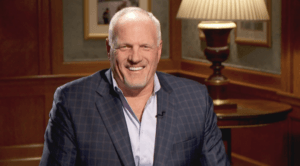 At the age of 21 Mark Eaton was an auto mechanic with no talent for basketball. In a few short years, using the teamwork principles he now teaches, he became the NBA’s Defensive Player of the Year-twice! He also earned a spot on the All-Star team and broke the NBA record for most blocked shots in a single season: 456. It is still the record today.
At the age of 21 Mark Eaton was an auto mechanic with no talent for basketball. In a few short years, using the teamwork principles he now teaches, he became the NBA’s Defensive Player of the Year-twice! He also earned a spot on the All-Star team and broke the NBA record for most blocked shots in a single season: 456. It is still the record today.
After his 12 year professional basketball career with the Utah Jazz, Mark went on to further success as an entrepreneur, TV and radio talk show host, and world-class speaker, trainer, and author. He taught industry leaders, teams and individuals how to outsmart, outlast, and out perform, their competition and achieve record-breaking success. Since recording this interview, Mark passed away on May 29, 2021.
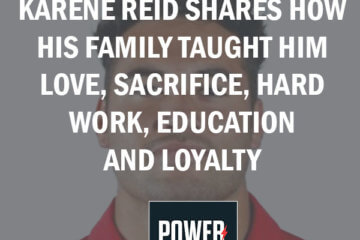

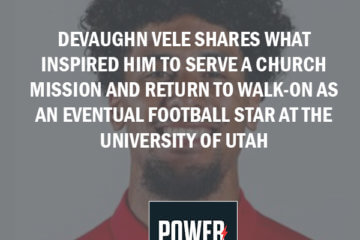
0 Comments